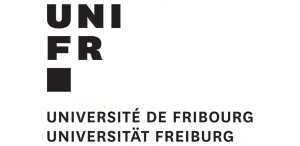The transition from university life to professional life is a new step. Here are some tips to help you prepare for this transition.
Context
Different challenges arise again at the end of the studies:
- Change: it can bring discomfort and can often be feared by students, especially on the autism spectrum
- The idea of giving up studies can be disturbing: indeed, studies are often intellectually very stimulating and reassuring because of their “supervised” aspect (you don’t have many choices to make but rather instructions to follow in a certain order)
- The fear of not making the right career choice can be unsettling
- The unfamiliarity of the application process and then integrating with new colleagues in a new location can be overwhelming
- Fears of making a social blunder during this “socially coded” application process can override the motivation to enter the workforce
What does that have to do with me?
These different issues are governed by a theoretical concept called self-determination.
Self-determined behaviour refers to “voluntary actions that enable one to act as the primary causal agent in one’s life or to maintain one’s quality of life” (Wehmeyer, 2005, p. 117). Four essential characteristics constitute self-determined behaviour: 1) the person acts autonomously 2) the behaviour is self-regulated 3) the person initiates and reacts to events in a psychologically autonomous manner 4) the person acts in a self-realized manner.
Self-determination is the ideal that many adults want to achieve, but everyone approaches it at their own pace, and that’s fine. The transition period between student and adult life is an ideal time to ask yourself important questions about your own wishes and to get a little closer to your own autonomy.
Transversal skills
Another notion is increasingly central when you seeks to enter the job market: that of transversal skills, also called soft skills, in contradiction to the hard skills required by a profession. Transversal skills are all the “non-technical” knowledge and skills related to a job. For example, a lawyer must know the laws (hard skills related to his profession), but he will evolve more easily in his professional life if he is punctual, organized, reliable and polite (soft skills). You will find some indications on how to exercise these soft skills during university in the chapter on transferable skills.
What is the next step?
Dare to see change as a trial run that doesn't have to work the first time
Practical advice
- About nine to twelve months before you graduate, think about what you want to do next and make a list of possibilities
- If you are unable to make up your mind about your future choice, be kind to yourself: many young adults are. In this case, you can contact the career guidance office in your canton
- Make a skills assessment by making a list of all your skills. You can ask people around you to complete this assessment because outsiders often see our skills better than we do
- Make a list of your priorities for the future. These priorities are unique to each person, there is no standard list. They can be, for example, a percentage of work, a specific city, a specific preferred company, job characteristics such as the possibility of working in an isolated room, the desired level of socialization, the possibility of autonomy or not
- Check the type of ad on the usual job boards: jobup.ch, comparis.ch, jobs.ch, jobscout24.ch
- See if your priorities would be compatible with the job postings and refine your search criteria
- Prepare your CV and cover letter (see chapter on applying for the first time)
- Make a list of a few companies that you would be interested in shadowing for a few days
- Perhaps use your cover letter to apply for an observation period. This will allow you to discover different professional environments and better understand what you would like to do
- If you get internships, ask your employers for a certificate of internship to support your next applications
- Make your LinkedIn profile as well as your professional portfolio (for example on Mahara.org). Such a platform allows you to showcase your transversal skills as well as your personal achievements even if you don’t have much experience yet
- If you get an interview, practice. You can find more information in the chapter how to prepare for a job interview
- If you get a job, it is a good idea to prepare well for the first few weeks. You can find information on this in the chapter on reasonable adjustments
Questions to ask yourself
- Do I already know if I would prefer to continue studying or if I am ready to try a professional life?
- Do I want to stay in my current city or move to another location?
- Do I want to work full time?
- Do I want to work in an environment that is particularly sensitive to autism?
- Do I have a clear idea of the type of job I am interested in?
- Have I ever looked at the job boards to see the types of ads?
- Have I gathered my documents for the application process?
- Do I want to talk about my autism or not?
Additional information
- Mahara Portal
- Some companies explicitly look for autistic people for their special skills: Specialistern, Twofold Academy, Autismuslink.
- See also Aspiejob.org for interesting resources
- https://www.orientation.ch/
- CONTACT
About the author
Edited by: Nathalie Quartenoud ©
Translated by: Daniel Dukes


 Back
Back